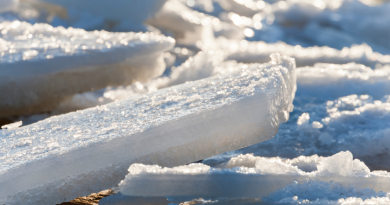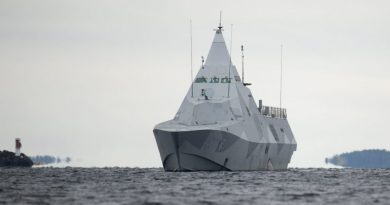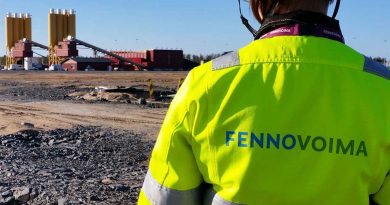Blog: Blowback – The Ukraine Conflict and Arctic Security
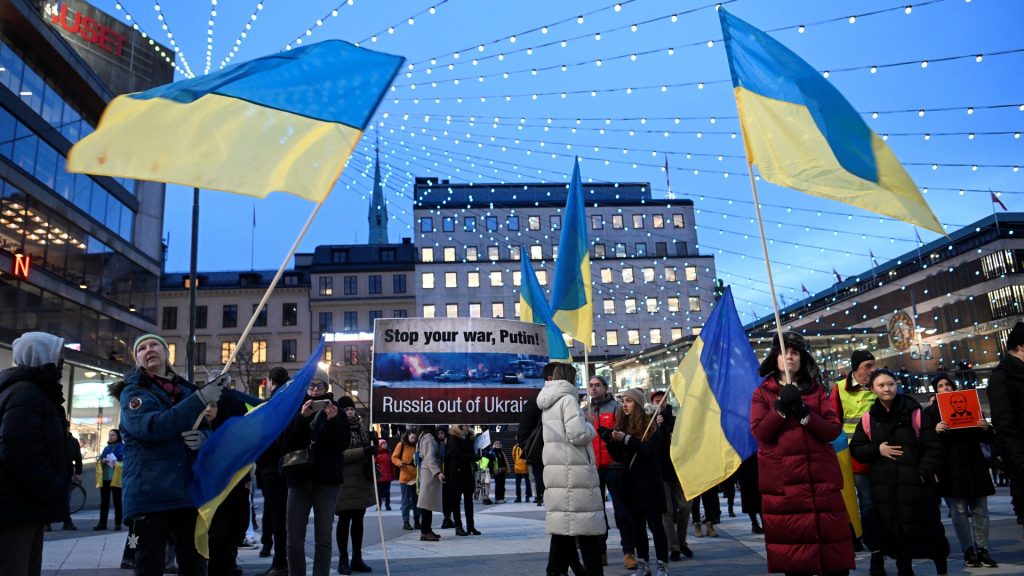
The illegal Russian invasion of Ukraine on 24 February will result in aftershocks throughout Europe and the global community for months, and possibly years, to come.
The Arctic will not be unaffected by this conflict, given Moscow’s dominant presence in polar politics and the overspill effects of the diplomatic rift, now a chasm, between Russia and the West, into Arctic security concerns.
There has yet been no significant change in military movements in the Arctic and on the northern Russian borders, save for the movement of vessels from the Russian Navy’s Northern Fleet southwards, joining ships from the Baltic Fleet in attacks on Ukraine. Within hours of the start of the attack, Norwegian Prime Minister Jonas Gahr Støre confirmed that there was no evidence of increased Russian military activity in the European Arctic, (Northern Norway has a 196km land border with Russia). Oslo since joined European and other world capitals in condemning the Vladimir Putin regime, as well as that of Alexander Lukashenko in Belarus, for supporting the Russian invasion. The government of Finland, which has a considerably longer border (1340km) with the Russian Federation, also reported no change in military posture there.
The Støre government also agreed to back European Union sanctions against Moscow, although Norway is not itself an EU member. As numerous demonstrations took place in Europe and beyond [video] in support of Kyiv, a small crowd calling for a halt to the fighting also gathered a day after the incursion in front of the Russian Consulate in Kirkenes, on the Norway-Russia frontier. The launch of the invasion had also taken place during the annual Kirkenes Conference (Kirkeneskonferansen), in the border town, prompting Russia’s Ambassador to Norway, Teimuraz Ramishvili, to withdraw [in Norwegian] from the event.
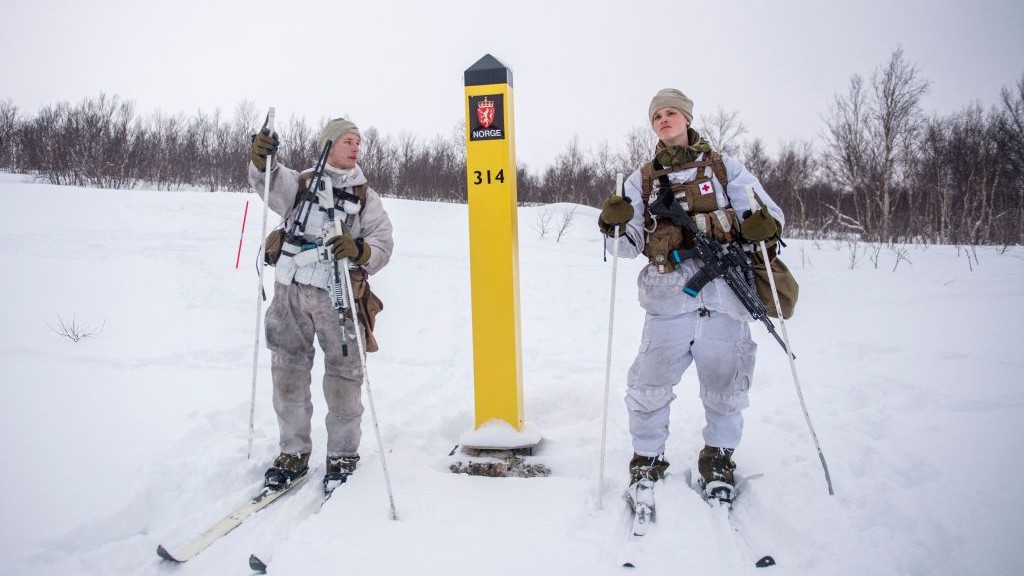
Canada, which has one of the largest overseas Ukrainian populations in the world, (approximately 1.4 million), especially in the province of Alberta, also announced a wide array of sanctions against the Putin regime, as well as support for NATO operations in Europe and assistance for Canadians leaving the war zone.
Deputy Prime Minister Chrystia Freeland, who is of Ukrainian descent, condemned the ‘brutal and unprovoked attack on the sovereignty of Ukraine’, and Prime Minister Justin Trudeau soon called for further economic pressures to be imposed on Moscow, including the removal of Russian financial institutions from the Belgium-based SWIFT global banking system. Such a move, which has since been implemented on select Russian banks, will greatly inhibit the country’s ability to make international payments.
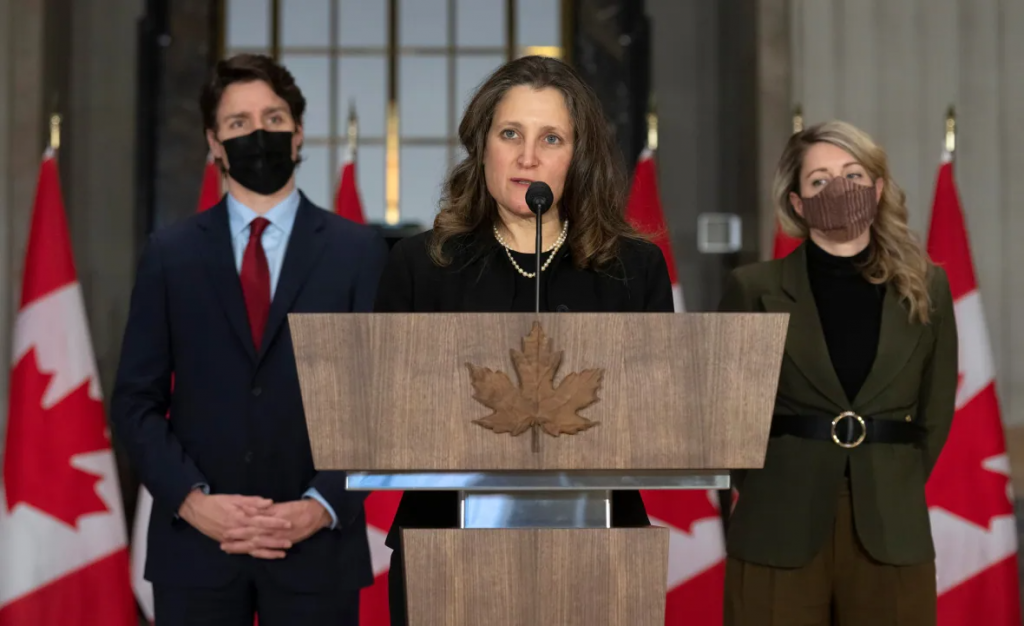
The situation in Ukraine, as well as the course of the conflict, remains uncertain at this early stage, but the invasion will have significant short-term effects on Arctic cooperation and security.
Regional organisations and climate change countering efforts
Following the end of the cold war, there was the longstanding perception, often referred to as ‘Arctic exceptionalism’, that the far north would benefit from a disconnect from security concerns in other parts of the world, and instead would be given space to concentrate on human security issues, including development, education, health and communications, as well as environmental effects of warming temperatures and the steady erosion of the Arctic ice cap.
The Arctic Council, founded in 1996, best illustrated these ideas, including the stipulation in the organisation’s founding document that military affairs would not be included in the Council’s agenda. The organisation was notable in its abilities to pursue areas of scientific cooperation which could include representatives from all eight Arctic governments, including Moscow.
The unwritten agreement within the Council membership that governments should ‘check their politics at the door’ experienced considerable strains as diplomatic differences between Russia and Western governments became more acute in recent years, especially after the Russia’s annexation of Crimea and the military incursions in eastern Ukraine since 2014.
The current Russian-instigated war in Ukraine, however, may be a blow from which the Arctic Council may find it difficult to recover, especially considering that Moscow currently holds the chair of the organisation until 2023. As a recent comment in the High North News explained, Council events and plenaries, including the scheduled Ministerial meeting which is to take place in Russia marking the transfer of the chair position from that country to Norway next year, may be adversely affected, although normal Council work would likely continue.
The Arctic Council had just begun to return to normal operations after a difficult period caused by the isolationist and contrarian regional policies of the former Donald Trump government in the United States. Council deliberations were complicated at that time by the refusal of the Trump administration to agree that climate change even existed.
Washington’s return to the organisation’s efforts in addressing the growing number of environmental dangers caused by rising Arctic temperatures was only possible with the election of Joe Biden in late 2020, as well as the efforts of the most recent Ministerial meeting in Reykjavík to place climate change back in the centre of the Council’s agenda. With the conflict in Ukraine, the ability of the organisation to operate separately from security concerns will be subjected to an acid test never seen before.
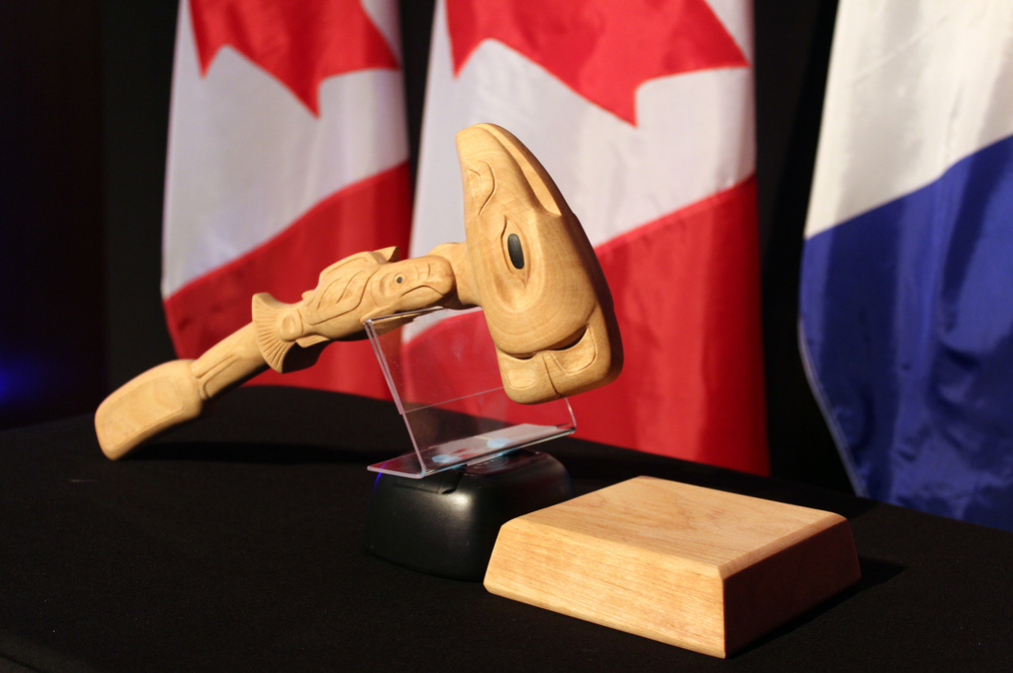
There is also the question of the effects of the Ukraine conflict on other Arctic organisations, including Track II (sub-governmental) events which have provided additional opportunities for regional debates, information sharing, and scientific endeavours. These include the Arctic Circle, which resumed its annual gatherings last year in Reykjavík, as well as Arctic Frontiers in Tromsø, which is now scheduled for this coming May after being postponed due to the omicron outbreak. Other northern initiatives which have provided opportunities for cooperation between Russia and Western governments, including via the Arctic Coast Guard Forum, are also now in doubt.
Surrounding all of this uncertainty is the degree to which multinational attempts to fight climate change in the Arctic may be affected or delayed, especially at a time when the far north is experiencing the effects of warmed temperatures and resulting ice loss at ever more dangerous levels. As well, with European governments taking steps to restrict imports of Russian gas, including the cancellation of the Nordstream 2 pipeline project, will a window be opened for accelerated moves towards more climate-friendly renewable alternatives?
Moves towards Arctic militarisation
The Arctic has become a greater security concern in conjunction with the opening of the high north to expanded economic activity, including the opening of northern maritime sea routes and the potential for fossil fuel and resource extraction. While discussion about a scramble for Arctic resources quieted after 2014 as energy and commodity prices fell, (and with demand falling even further during the Covid-19 pandemic), the spike in oil prices this month caused by the Ukraine crisis, as well as continuing concerns about supply chain security, may restart interest in wider economic activities in and around the Arctic Ocean.
As the Putin regime has placed great emphasis on the opening of the Russian Arctic for economic gains, including expanding oil and gas projects and developing the ‘Polar Silk Road’ as a trade conduit between Europe and Northeast Asia, military assets have also been moved to the country’s Arctic lands. New bases have been opened, and Moscow’s already extensive icebreaker fleet continues to be expanded, with reports earlier this month that construction of nuclear reactors for the promised Leader (Лидер)-class icebreaker was underway.
As well, Moscow’s main partner in the Polar Silk Road’s evolution, China, remains a wild card in the Arctic, especially following a joint declaration [in Chinese] between President Putin and Chinese leader Xi Jinping on 4 February which outlined plans for deeper bilateral cooperation, including in Arctic affairs. Beijing has been seeking to retain a certain degree of non-alignment in the crisis thus far, but was widely seen as providing an economic lifeline for the Putin regime in the wake of multiple Western sanctions despite an announcement that some Chinese state banks would, at least initially, limit financing for Russian commodities purchases.

NATO, which includes Arctic states Canada, Denmark, Iceland, and Norway, along with the United States, has also made the Arctic a greater priority as a response to the strengthened Russian military presence in the far north. The next major joint military exercise the Organisation has planned, Cold Response 2022 [in Norwegian], is scheduled to begin in March of this year including in the Arctic regions around the city of Bodø and in Porsangmoen, Finnmark.
The events of the past few days have also reintroduced the conundrum of whether, in response to Russian aggression, Arctic states Finland and Sweden would join NATO. Both governments had been drawing close to the Organisation as Russia began to accelerate its military enhancement in the North Atlantic, and during a press briefing in the wake of the Ukraine invasion NATO Secretary-General Jens Stoltenberg reaffirmed the close partnership the alliance has developed with Helsinki and Stockholm.
The prospect of two new members of NATO has clearly unsettled Moscow, as shortly after the invasion a statement by Russian Foreign Ministry spokesperson Maria Zakharova included a warning that membership of the two Arctic states would invite ‘serious military-political repercussions’. However, the Russian admonition was quickly dismissed by the Finnish and Sweden governments, who both stressed that they would not be pushed from outside into altering their closer relations with the alliance.
It is an open question as to what degree the Arctic, as well as the Baltic region which includes Arctic-adjacent NATO members Estonia, Latvia and Lithuania, will be affected as the Ukraine crisis continues to unfold. It is likely there will be significant aftereffects in the north as a result of this invasion, especially if this conflict is protracted. Traditional patterns of cooperation may be indefinitely disrupted, and it can no longer be assured that the high north will be insulated from great power politics and fragmenting diplomacy in Europe, as Ukraine’s future is now very much in the balance.
Related stories from around the North:
Canada: Sweden, Finland pull out of Arctic360 conference in Toronto where Russian diplomats scheduled to attend, Eye on the Arctic
Finland: Finnish Army exercises inter-agency readiness, Eye on the Arctic
Norway: Norway’s Sovereign Wealth Fund exits Russia, divesting order given, Eye on the Arctic
Russia: Putin announces Sunday he’s put nuclear deterrence forces on alert on Kola Peninsula, The Independent Barents Observer
Sweden: Nordic military cooperation takes shape with common uniforms, The Independent Barents Observer

